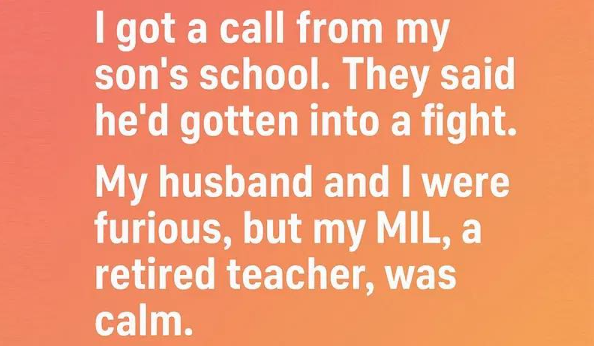I received a phone call from my son’s school, notifying me that he had been caught in a physical altercation.
My husband and I were upset, ready to reprimand him the moment he walked through the door.
Yet, my mother-in-law, a former educator, remained composed.
With a steady tone, she requested a pen and a sheet of paper, which she then passed to our son.
We observed, intrigued, as she calmly instructed, “If you’re capable of using your hands to fight, you’re capable of using words to explain. Write down every detail of what happened, step by step, leaving nothing out.”
At first, he seemed hesitant but gradually started to write.
When he finished, the pages overflowed with raw feelings—frustration, hurt, and even regret.
Through his written words, we learned he had been enduring persistent teasing and felt cornered, unsure of how to respond.
His account shifted our viewpoint, guiding us to approach the situation with empathy rather than frustration.
My mother-in-law, with a gentle smile, handed him another sheet of paper.
“Now,” she said, “write what you wish you could have done differently.”
That second letter brimmed with compassion, thoughtfulness, and even a heartfelt apology.
By the evening’s end, our son was not only calmer but also carried a sense of pride.
The following day, he shared his apology with the other boy and his teacher.
The school counselor later shared that it was among the most thoughtful resolutions they had witnessed.
In that experience, I recognized the strength of reflection and wise guidance.
Sometimes, encouraging a child to express their emotions through writing holds more power than any form of discipline.
It’s a lesson we’ll hold close forever—that words, when chosen carefully, can mend far more than anger ever cou




